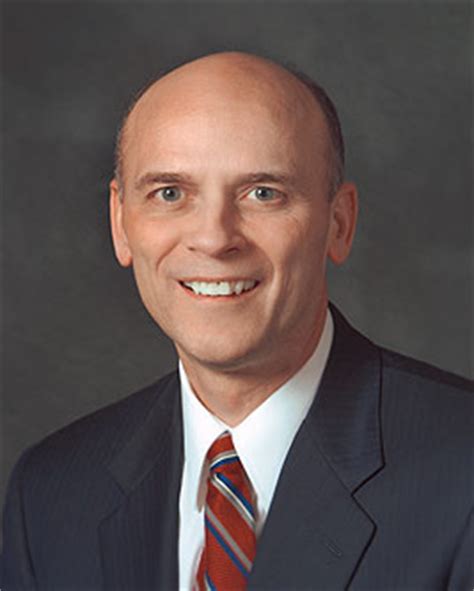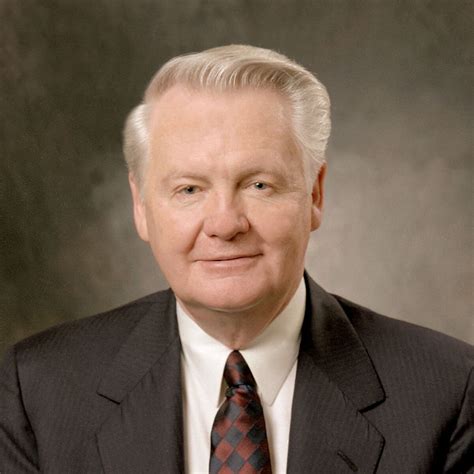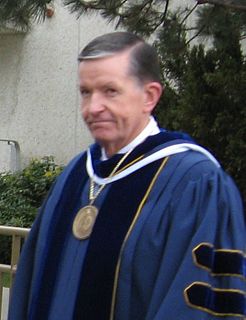A Quote by C. Scott Grow
There is no sin or transgression, pain or sorrow, which is outside of the healing power of His Atonement.
Related Quotes
The Atonement of Jesus Christ and the healing it offers do much more than provide the opportunity for repentance from sins. The Atonement also gives us the strength to endure "pains and afflictions and temptations of every kind," because our Savior also took upon Him "the pains and the sicknesses of his people" (Alma 7:11). Brothers and sisters, if your faith and prayers and the power of the priesthood do not heal you from an affliction, the power of the Atonement will surely give you the strength to bear the burden.
Repentance out of mere fear is really sorrow for the consequences of sin, sorrow over the danger of sin — it bends the will away from sin, but the heart still clings. But repentance out of conviction over mercy is really sorrow over sin, sorrow over the grievousness of sin — it melts the heart away from sin. It makes the sin itself disgusting to us, so it loses its attractive power over us. We say, ‘this disgusting thing is an affront to the one who died for me. I’m continuing to stab him with it!’
So long as the processes of healing were not understood and man thought that the power to heal resided in substances and things outside of him, he logically sought for extrinsic means of healing, and a healing art was a logical development. The system of medicine, as we know it today, was a logical development out of the fallacy that healing power resides in extrinsic sources.
Faith stands or falls on the truth that the future with God is more satisfying than the one promised by sin. Where this truth is embraced and God is cherished above all, the power of sin is broken. The power of sin is the power of deceit. Sin has power through promising a false future. In temptation sin comes to us and says: "The future with God on his narrow way is hard and unhappy, but the way I promise is pleasant and satisfying." The power of sin is in the power of this lie.
Life is a school, a place for us to learn and grow. We, like Adam and Eve, experience 'growing pains' through the sorrow and contamination of a lone and dreary world. These experiences may include sin, but they also include mistakes, disappointments, and the undeserved pain of adversity. The blessed news of the gospel is that the Atonement of Jesus Christ can purify all the uncleanness and sweeten all the bitterness we taste.
Jesus doesn't give an explanation for the pain and sorrow of the world. He comes where the pain is most acute and takes it upon himself. Jesus doesn't explain why there is suffering, illness, and death in the world. He brings healing and hope. He doesn't allow the problem of evil to be the subject of a seminar. He allows evil to do its worst to him. He exhausts it, drains its power, and emerges with new life.
Willful sterility is, from the standpoint of the nation, from the standpoint of the human race, the one sin for which the penalty is national death, race death; a sin for which there is no atonement. No man, no woman, can shirk the primary duties of life, whether for love of ease and pleasure, or for any other cause, and retain his or her self-respect.
Jesus Christ was the only one capable of performing the magnificent Atonement because He was the only perfect man and the Only Begotten Son of God the Father. He received His commission for this essential work from His Father before the world was established. His perfect mortal life devoid of sin, the shedding of His blood, His suffering in the garden and upon the cross, His voluntary death, and the Resurrection of His body from the tomb made possible a full Atonement for people of every generation and time.
Stephen had just come from a class discussion in which several students believed that the right cup of herbal tea would save them from pain and sorrow. Well acquainted with pain and sorrow, Stephen did not contribute to the discussion. He merely crossed these idiots off his list of possible friends.
































